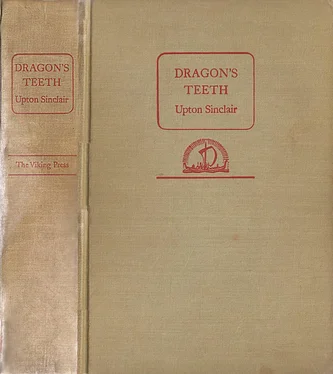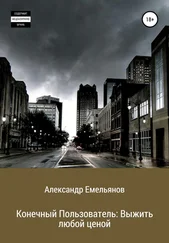Пользователь - o 3b3e7475144cf77c
Здесь есть возможность читать онлайн «Пользователь - o 3b3e7475144cf77c» весь текст электронной книги совершенно бесплатно (целиком полную версию без сокращений). В некоторых случаях можно слушать аудио, скачать через торрент в формате fb2 и присутствует краткое содержание. Жанр: Старинная литература, на русском языке. Описание произведения, (предисловие) а так же отзывы посетителей доступны на портале библиотеки ЛибКат.
- Название:o 3b3e7475144cf77c
- Автор:
- Жанр:
- Год:неизвестен
- ISBN:нет данных
- Рейтинг книги:4 / 5. Голосов: 1
-
Избранное:Добавить в избранное
- Отзывы:
-
Ваша оценка:
- 80
- 1
- 2
- 3
- 4
- 5
o 3b3e7475144cf77c: краткое содержание, описание и аннотация
Предлагаем к чтению аннотацию, описание, краткое содержание или предисловие (зависит от того, что написал сам автор книги «o 3b3e7475144cf77c»). Если вы не нашли необходимую информацию о книге — напишите в комментариях, мы постараемся отыскать её.
o 3b3e7475144cf77c — читать онлайн бесплатно полную книгу (весь текст) целиком
Ниже представлен текст книги, разбитый по страницам. Система сохранения места последней прочитанной страницы, позволяет с удобством читать онлайн бесплатно книгу «o 3b3e7475144cf77c», без необходимости каждый раз заново искать на чём Вы остановились. Поставьте закладку, и сможете в любой момент перейти на страницу, на которой закончили чтение.
Интервал:
Закладка:
their royal robes, were hesitant and worried mortals, craving affection and tormented by fears of
poison and daggers, of demons and gods, or, in these modem times, of financial collapses and
revolutions.
Jascha Rabinowich had changed his name but had remained a Jew, which meant that he was
race-conscious; he was kept that way by contempt and persecution. Part of the time he
blustered and part of the time he cringed, but he tried to hide both moods. What he wanted
was to be a man like other men, and to be judged according to his merits. But he had had to flee
from a pogrom in Russia, and he lived in Germany knowing that great numbers of people
despised and hated him; he knew that even in America, which he considered the most
enlightened of countries, the people in the slums would call him a "sheeny" and a Christ-killer,
while the "best" people would exclude him from their country clubs.
He talked about all this with Lanny, who had fought hard for his sister's right to marry
Hansi. People accused the Jews of loving money abnormally. "We are traders," said
Johannes. "We have been traders for a couple of thousand years, because we have been driven
from our land. We have had to hide in whatever holes we could find in one of these
Mediterranean ports, and subsist by buying something at a low price and selling it at a higher
price. The penalty of failure being death has sharpened our wits. In a port it often happens that
we buy from a person we shall never see again, and sell to some other person under the same
conditions; they do not worry much about our welfare, nor we about theirs. That may be a
limitation in our morality, but it is easy to understand."
Lanny admitted that he understood it, and his host continued:
"My ancestors were master-traders all the way from Smyrna to Gibraltar while yours were
barbarians in the dark northern forests, killing the aurochs with clubs and spears. Naturally our
view of life was different from yours. But when you take to commerce, the differences disappear
quickly. I have heard that in your ancestral state of Connecticut the Yankee does not have his
feelings hurt when you call him slick. You have heard, perhaps, of David Harum, who traded
horses."
"I have heard also of Potash and Perlmutter," said Lanny, with a smile.
"It is the same here, all around the shores of this ancient sea which once was the civilized world.
The Greeks are considered skillful traders; take Zaharoff, for example. The Turks are not easy
to deceive, and I am told that the Armenians can get the better of any race in the world.
Always, of course, I am referring to the professional traders, those who live or die by it. The
peasant is a different proposition; the primary producer is the predestined victim, whether he is in
Connecticut buying wooden nutmegs or in Anatolia receiving coins made of base metal which he
will not be clever enough to pass on."
IV
Lanny sat with Madame Zyszynski, but the results he obtained were not of the best.
Tecumseh, the noble redskin, was suspicious and inclined to be crotchety; he took offense
when one did not accept his word, and Lanny had made the mistake of being too honest. The way
to get results was to be like Parsifal Dingle, who welcomed the spirits quite simply as his friends,
chatting with them and the "control" in an amiable matter-of-fact way. Apparently it was with
the spirits as with healing: except ye be converted, and become as little children! . . .
What Tecumseh would do was to send messages to Lanny through Parsifal. He would say:
"Tell that smart young man that Marcel was here, and that he is painting spirit pictures, much
more wonderful than anything he ever did on earth—but they will never be sold at auctions."
Lanny wanted to know if Marcel objected to having his works sold; but for a long time the
painter ignored his question. Then one day Tecumseh said, rather grudgingly, that it didn't
really matter to Marcel; everything was sold in Lanny's world, and it was no use keeping
beautiful things in a storeroom. This sounded as if the spirit world was acquiring a "pinkish"
tinge.
Madame gave several seances every day. She had done it while she was earning her living on
Sixth Avenue, and insisted that it didn't hurt her. She would accommodate anyone who was
interested, and presently she was delving into the past of the Rabinowich family, telling about
those members who had "passed over." It was a bit unsatisfactory, for there were many
members of that family, and Jascha had lost track of them; he said that he never heard from them
except when someone needed money for some worthy purpose, and all purposes were worthy.
He said that the way to check on the identity of any member of his family in the spirit world
would be that he was asking for money to be given to a son or daughter, a nephew or niece still
on earth!
But there had been indeed an Uncle Nahum, who had peddled goods in Russian-Polish
villages, and had been clubbed to death by the Black Hundreds. The realistic details of this
event sounded convincing to Mama Robin, who had witnessed such an incident as a child and
still had nightmares now and then as a result. Then it was Jascha's own father talking to him;
when he mentioned that his beard had turned white faster on one side than on the other, and
how he had kept his money hidden under a loose brick in the hearth, Lanny saw his urbane host
look startled. Johannes said afterward that he had thought all this must be a fraud of some
sort, but now he didn't know what to think. It was really unthinkable.
So it went on, all over the pleasure vessel. The gray-bearded and heavy-minded Captain
Moeller condescended to try the experiment, and found himself in conversation with his eldest
son, who had been a junior officer on a U-boat, and told how it felt to be suffocated at the
bottom of the sea. Baby Frances's nursemaid, a girl with a Cockney accent who had got a few
scraps of education at a "council school," learned to sit for long periods talking with her father, a
Tommy who had been killed on the Somme, and who told her all about his early life, the name
of the pub where he had made bets on horse races, and where his name was still chalked up on a
board, along with that of other dead soldiers of the neighborhood.
How did Madame Zyszynski get such things? You could say that she sneaked about in the yacht
and caught scraps of conversation, and perhaps rummaged about in people's cabins. But it just
happened that she didn't. She was a rather dull old woman who had been first a servant and
then the wife of the butler to a Warsaw merchant. She suffered from varicose veins and dropsy in
its early stages. She understood foreign languages with difficulty and didn't bother to listen most
of the time, but preferred to sit in her own cabin playing endless games of solitaire. When she
read, it was the pictures in some cheap magazine, and the strange things she did in her trances
really didn't interest her overmuch; she would answer your questions as best she could, but
hardly ever asked any of you. She declared again and again that she did these things because
she was poor and had to earn her living. She insisted, furthermore, that she had never heard
the voice of Tecumseh, and knew about him only what her many clients had told her.
But what a different creature was this Indian chieftain! He was not the Tecumseh of history,
he said, but an Iroquois of the same name. His tribe had been all but wiped out by smallpox.
Читать дальшеИнтервал:
Закладка:
Похожие книги на «o 3b3e7475144cf77c»
Представляем Вашему вниманию похожие книги на «o 3b3e7475144cf77c» списком для выбора. Мы отобрали схожую по названию и смыслу литературу в надежде предоставить читателям больше вариантов отыскать новые, интересные, ещё непрочитанные произведения.
Обсуждение, отзывы о книге «o 3b3e7475144cf77c» и просто собственные мнения читателей. Оставьте ваши комментарии, напишите, что Вы думаете о произведении, его смысле или главных героях. Укажите что конкретно понравилось, а что нет, и почему Вы так считаете.




